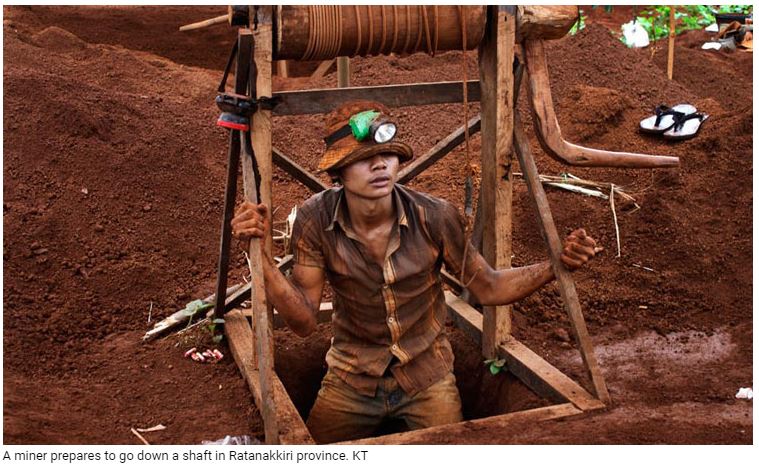Cambodia: Extractive industry to become new economic driver – Ministry
The government last week said the extractive industry is on course to become a main economic pillar.
Cambodia’s economic development is mostly driven by the construction, real estate, tourism, garments and agricultural sectors, but the government is working to diversify, with the extractive industry set to become an important source of growth, said Suy Sem, the Minister of Mines and Energy.
Speaking during the 8th Extractive Industries Forum, Mr Sem said the extractive industry will play an increasingly significant role in Cambodia’s economy and social development.
The forum, held under the theme ‘Toward Responsible Mineral Development in Cambodia’, was held on Friday in Phnom Penh.
He noted that the industry has been boosted by the establishment of large-scale cement plants, oil refineries, and gold mining facilities.
“This industry will be the backbone of the Kingdom’s economy. It will create a new source of revenue for the national budget and provide job opportunities to local communities.
“It will play a significant part in strengthening and diversifying Cambodia’s economic development,” he said.
Last week, Prime Minister Hun Sen said the extractive industry, particularly gold mining and oil extraction, will help generate more revenue for the government. The premier said Singapore-based KrisEnergy is expected to begin oil extraction sometime next year.
“The revenue from locally-extracted oil will be used to build infrastructure and improve the health and education sectors,” Mr Hun Sen said.
Speaking to Khmer Times after the event, Meng Saktheara, secretary of state at the Ministry of Mines and Energy, said revenue from the mining and oil sectors can be divided into two categories: tax and non-tax revenue.
Non-tax revenue refers to licensing fees, land leases and royalties payable to the government through the Ministry of Mines and Energy. Tax revenue, on the other hand, is collected by the General Department of Taxation.
“Non-tax revenue collected from the mining and oil sectors amounted to almost $20 million per year from 2014 to 2018. This is a lot more than in 2013, when it was only $2 or $3 million,” he said.
“When large-scale mining and oil operations begin – including projects by KrishEnergy, Renaissance Minerals, and Mesco Gold – there will be more revenue generated for the government.”
Renaissance Minerals, a subsidiary of Australia-listed Emerald Resources, is expected to begin extracting gold in Cambodia’s Mondulkiri province sometime in 2021, according to Mr Saktheara, who said the company will take the whole year of 2020 to finish its construction site.
Un Vichea, representative of Mesco Gold, confirmed to Khmer Times last week that his company will begin extracting gold in mid-2020.
“Construction of the site is almost over, but we still need to build our refinery. We hope to begin gold production in May next year,” he said, noting that the company will pay 30 percent tax on income.
Priscilla Ngero, Oxfam interim country director, said the extractive industry has contributed to poverty reduction and equitable development in the country.
“To achieve the goal of responsible mining development, industry players have to be transparent and responsible when it comes to the environment and social issues,” she said.
She said Oxfam has a global extractive industry programme working in more than 30 countries in Asia, Latin America and Africa.
“We develop tools, guidelines, and reports to promote responsible mining operations. And we support civil society partners and local communities engaged in the sector to enhance the social responsibility of the extractive industries,” she said.
Source: https://www.khmertimeskh.com/50663802/extractive-industry-to-become-new-economic-driver-ministry/


 English
English




